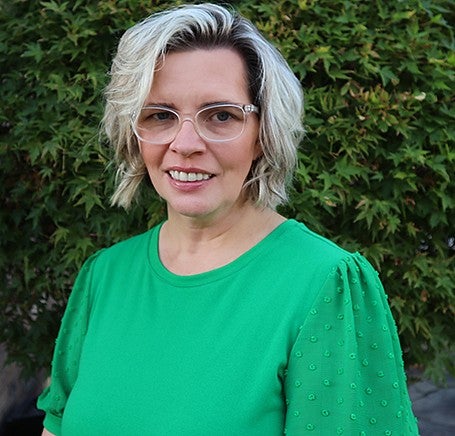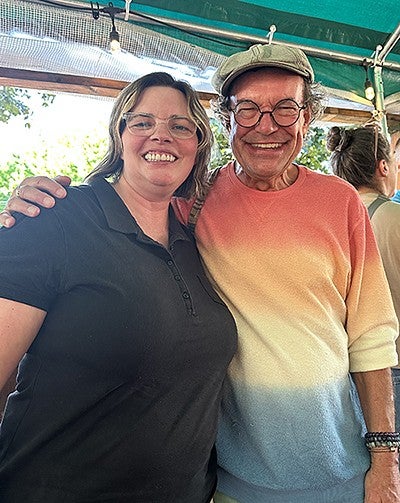
Meet Cecilia Morgan, a student graduating from the Applied Behavior Analysis online program, through our Graduate Spotlight series
“Build relationships with your professors and find a mentor (or two). Your professors are not only content experts but are also deeply invested in your success.” – Cecilia Morgan
Cecilia (she, her) is a a first-generation student from Central Point, Oregon graduating from the Applied Behavior Analysis online program. Cecilia has been involved in multiple projects and studies during her time as a student, all focused on on advancing access, inclusion, and practical, evidence-based support for families and educators. She is a research assistant in the Shire Lab, partnering with UCLA on a project focused on social communication and joint play in autistic children.
Cecilia also serves as a research associate/caregiver coach with Project WellCAST, where she supports caregivers of children with rare genetic disorders through individual and group coaching on naturalistic communication and challenging behavior strategies.
Following graduation, Cecilia intends to become a Board-Certified Behavior Analyst (BCBA). The skills and experience she has gained through the hands-on experience, rigorous coursework, and mentorship from faculty has prepared her for her career working and supporting vulnerable populations.
Hometown: Originally from Central Point, OR; Currently residing in the Portland-Metro area, where I’ve been for the last 20+ years.
Can you tell us a little more about your research interests and studies you worked on during your time in the ABA program?
My research interests include inclusive education, naturalistic communication interventions, caregiver coaching, and reducing challenging behaviors across home, school, and community settings.

During my first year of graduate school, I was a research assistant at UO, in the Shire Lab, partnering with UCLA on a project focused on social communication and joint play in autistic children. I conducted telehealth caregiver-child assessments. This was a deeply rewarding experience, as I observed meaningful improvements in how families communicated and connected over time. I currently serve as a research associate/caregiver coach with Project WellCAST, a collaboration between Purdue University and the University of Oregon. I support caregivers of children with rare genetic disorders through individual and group coaching on naturalistic communication and challenging behavior strategies.
I’m also completing a practicum internship with NWPBIS, where I’m reviewing research on student voice in school-wide practices and developing a resource page for educators. In addition, I’m creating a webinar for paraeducators who support students with challenging behavior. Alongside this, I’m writing a systematic review on how caregiver involvement in K-12 special education is reported in research. I am also a contributor to two additional systematic reviews- one with a UO doctoral student and another with a UO alumni faculty member.
Across all of my work, I’m focused on advancing access, inclusion, and practical, evidence-based support for families and educators.
How did the ABA program prepare you for your career?
The coursework is rigorous and deeply relevant, but what really sets it apart is the mentorship you receive from faculty. The program has given me the skills and knowledge as well as connected me with various projects to get real world experience. These opportunities have been instrumental in helping me grow into a thoughtful, ethical, and competent practitioner ready to meet the demands of the field.
What are your plans following graduation?
Following graduation, I intend to become a Board-Certified Behavior Analyst (BCBA). The skills and experience I’ve gained through my involvement in the projects above have led to multiple job opportunities. In the long term, I hope to use this foundation to support vulnerable populations and positively impact the lives of others.
What advice would you give incoming/current students?
Build relationships with your professors and find a mentor (or two). Your professors are not only content experts but are also deeply invested in your success. A good mentor can help you navigate challenges, push you to grow, and remind you of your strengths when you forget them. Don’t be afraid to ask questions, seek guidance, or show up to office hours. These relationships can become one of the most meaningful parts of your graduate experience.
